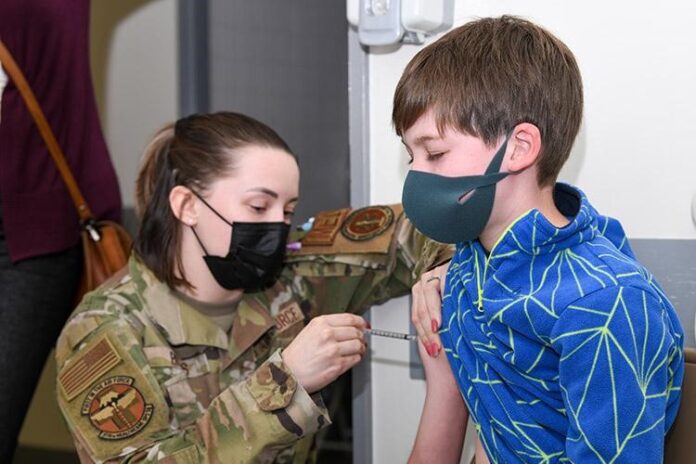Paediatric vaccinations have played a crucial role in reducing the prevalence of once-common childhood diseases. However, you might be questioning the necessity of these immunizations for your child.
While you may have turned to the internet for information, it’s important to be cautious about misleading claims regarding vaccine safety. Many of these claims are not only unfounded but also can be quite alarming, contributing to parental hesitancy in vaccinating their children.
In reality, extensive scientific research has led to significant breakthroughs in vaccine development, demonstrating their ability to save lives. It is crucial not to let myths hinder the protection of your child’s health. When it comes to making informed decisions about vaccines, a child specialist in Ahmedabad is the most reliable source of information. Beware of online sources that may have ulterior motives, such as selling products or driving website traffic through fear-based tactics. Your child’s well-being is of paramount importance, and the best way to safeguard it is through informed medical guidance.
Understanding How Vaccines Safeguard Your Child and the Community
Vaccines act as superheroes, shielding your children from harmful viruses and bacteria prevalent in both local and global contexts. These vaccines have played a pivotal role in eradicating once-deadly infectious diseases, such as polio and smallpox.
However, some diseases like measles persist in certain parts of the world and can easily spread due to increased global mobility. Unvaccinated children are particularly vulnerable to such diseases. Even seemingly mild illnesses like chickenpox can lead to life-threatening complications in unvaccinated individuals.
Vaccines provide a level of control over these unpredictable threats, offering peace of mind for parents who want to protect their children from potential health risks.
Minimising Invasive Medical Procedures
Paediatric vaccines help train a child’s immune system to recognize and combat harmful viruses and bacteria, reducing the need for invasive medical treatments, medications, and hospitalizations. For instance, the pneumococcal vaccine has significantly reduced life-threatening diseases associated with the bacteria it targets.
Similarly, the Hib vaccine has lowered the incidence of meningitis, eliminating the necessity for spinal taps in infants. By ensuring your child receives their recommended vaccines, you not only shield them from diseases but also spare them from harsh medical interventions.
Supporting Community Health
Every parent’s priority is to keep their children safe, and one way to achieve this is by adhering to the recommended vaccine schedule. By doing so, you not only protect your child but also contribute to achieving herd immunity within your community, reducing the likelihood of disease outbreaks.
To assess the immunisation status of children in your area, refer to the paediatric doctor in Ahmedabad. You can take proactive measures and engage in discussions about the benefits of vaccination with paediatrician doctors in Ahmedabad to further promote community health. Herd immunity safeguards even those who cannot receive vaccines, such as pregnant women, the elderly, and immunocompromised individuals.
Understanding Your Child’s Vaccination Schedule
The Academy of Pediatrics recommends vaccination against several serious diseases, each with its own schedule:
Hepatitis B: The first vaccine administered to babies as early as the first 24 hours of life, followed by doses at one month and one year, is crucial in preventing long-term hepatitis B infections, which can lead to cancer.
DTap (Diphtheria, Tetanus, Pertussis): This vaccine requires five doses and safeguards against these three serious illnesses, including diphtheria, tetanus, and pertussis.
Hib (Haemophilus influenzae type b): Around three or four doses of the Hib vaccine protect against ear and lung infections, as well as life-threatening conditions like meningitis.
IPV (Inactivated Polio Vaccine): Four doses of this vaccine help prevent polio, a disease that can lead to paralysis or death.
Pneumococcal Vaccine: Administered in four doses, this vaccine combats Streptococcus pneumoniae, which causes pneumonia, sepsis, meningitis, and ear infections.
Rotavirus: This vaccine, given in several doses, effectively prevents diarrhoea, a common and potentially severe illness in young children.
MMR (Measles, Mumps, Rubella): Children receive two doses of the MMR vaccine, with the possibility of a third dose during disease outbreaks, providing protection against these serious illnesses.
Varicella (Chickenpox): Two shots of this vaccine prevent the itchy blisters associated with the virus and contribute to reducing its spread.
Hepatitis A: Administered in two shots six months apart, this vaccine offers lifelong protection against serious liver disease, even in asymptomatic carriers.
Following Your Paediatrician’s Guidance
While vaccines are indeed superheroes in safeguarding children’s health, it’s important to emphasise that they are not antagonists. Ensure you gather information from credible sources, with the best paediatrician doctor in Ahmedabad being the foremost expert in guiding your vaccination decisions. Steer clear of unreliable sources that may aim to disseminate misinformation.
By adhering to the recommended vaccine schedule, you provide your child with the best chance of leading a healthy life. Decades of research and millions of vaccinated children have consistently shown that vaccines are most effective when administered at specific ages and intervals.
Following the recommended vaccination schedule not only protects your child but also contributes to the overall health of your community. At Sneh Children Hospital, we are your partners in ensuring your child’s optimal health. Let’s collaborate to protect your child’s well-being—schedule an appointment today.















